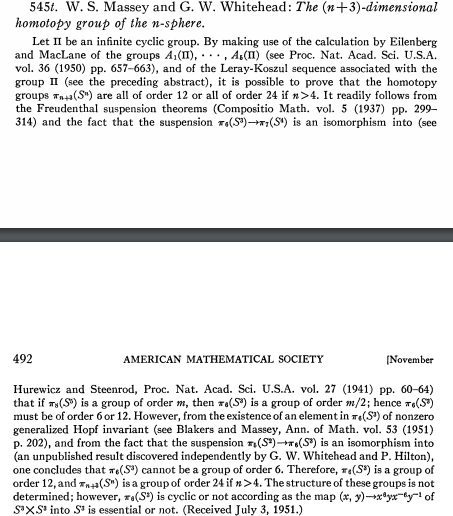I have spend some time with the geometric approach of framed cobordisms to compute homotopy classes, due to Pontryagin. He computed $\pi_{n+1}(S^n)$ and $\pi_{n+2}(S^n)$. After surveying the literature (not too deeply) I was under the impression that the computation of $\pi_{n+3}(S^n)\cong \mathbb{Z}/24\mathbb{Z}$ for $n\rightarrow \infty$ with similar methods is due to Rohlin in the following paper:
MR0046043 (13,674d) Reviewed
Rohlin, V. A.
Classification of mappings of an (n+3)-dimensional sphere into an n-dimensional one. (Russian)
Doklady Akad. Nauk SSSR (N.S.) 81, (1951). 19–22.
56.0X
It came a bit of a surprise to me that in the review of this paper on Mathscinet, Hilton states that the results in this paper are incorrect. Does the error only concern the unstable groups? Is it fair to cite this paper for the first computation of the third stable homotopy group of spheres, or should I cite papers by Barrat-Paechter, Massey-Whitehead and Serre? As I understand it these methods are much more algebraic and further removed from the applications that I have in mind.

